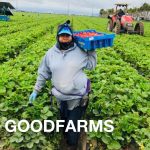The Effects of an Engaged Workforce Dispel Social Compliance Myths
Watch the webinar presented by The Packer and EFI.
No brand wants to be called out in the media for being associated with human trafficking, indentured servanthood, child labor or any other unethical labor practice in the supply chain. Those headlines absolutely get the attention of consumers. More and more, consumer demand, especially from the younger generations, is pushing retailers to ask suppliers about their sustainability practices. The questions coming at suppliers from buyers today are more in depth than they were even just ten years ago, and the industry overall is carrying more awareness of the importance of responsible labor practices and worker safety.
A social certification allows suppliers to offer transparency and assurance to buyers, who are dialed into the leanings of consumers. As an example of that transparency in action, Amalia Zimmerman-Lommel mentioned an instance when one of the company’s biggest retail customers had concerns regarding surety of supply due to a labor uprising in the Mexican region where some of their farms were located. The buyer representatives were able to get on a phone call with the Process Improvement Team* of that region and ask questions directly to the farmworkers.
*EFI Leadership Teams on Andrew & Williamson Fresh Produce/GoodFarms’ operations are called Process Improvement Teams
“Buyers choose customers, like GoodFarms, that are able to provide transparency, because we have boots on the ground on our farms and they know they are always welcome to come to our farm, look at the products, talk to the people and ask questions.”
– Amalia Zimmerman-Lommel, Director of Human Resources, Andrew & Williamson Fresh Produce/GoodFarms

The cost of a social audit will vary according to the size of an operation, but the price paid isn’t money spent on a one-time event: it’s an investment in your workforce. The steps involved in achieving a social certification yield engaged workers who understand their place in the supply chain and improved processes, giving suppliers the ability to deliver a higher quality product.
Social compliance is not a tool to get to a specific end, but a basis that generates a higher top-line and better results, enabling you to deliver your product on time, consistently and with higher quality. While the initial financial output is a commitment, the result is lower costs and higher net income for your company.
“What you gain from changing your organization’s culture and having an engaged workforce, retaining people, being an employer of choice and providing customers with assurance that you’re taking care of your workforce and the environment, is just so much more valuable than the cost of that audit.”
– Amalia Zimmerman-Lommel, Director of Human Resources, Andrew & Williamson Fresh Produce/GoodFarms

True social compliance goes beyond the universal legal standards by building a new culture for your organization that contains systems, checks and processes that facilitate good communication between workforce and management, transparency and continuous improvement.
“Social compliance is not a specific event in
time. It’s a process. It becomes a culture—more of a way of working.”
– Karla Cook, Certification Manager, EFI

An audit can be a stressful experience. But, when participating in an audit for a social certification, the findings of the auditor should serve to strengthen your progress toward the goals set by your company. The purpose is not to demonstrate a completed checklist, but to see the new systems and culture in action and identify areas for improvement. An audit can be a tool that boosts the effectiveness of the work culture, ensuring via a third party that everyone in the organization is doing the right thing and knows what the right thing is.
“Preparing for an audit really is about engagement, collaboration for continuous improvement, being transparent in the food chain and problem solving in food safety. It’s a way of changing your working culture, incorporating innovation in a way that will impact your business.”
– Karla Cook, Certification Manager, EFI

Listening to and addressing worker concerns demonstrates a value for the workforce and, as EFI-certified operations have consistently seen, worker feedback can contribute to solutions that management may have missed.
See examples of workforce-driven improvements from:
Zimmerman-Lommel mentioned another example of worker voice benefiting the company: During the pandemic, workers from GoodFarms took to social media to share examples of the precautions and steps the company was taking to protect their health. In response to the outpouring of statements and stories from farmworkers, the media had a positive story to tell. On the farm, new workers came seeking jobs. The operation stayed open every day during the pandemic and was able to harvest the full crop.
“The reality is there’s always an ability to improve what you’re doing. If you have that kind of mindset to get the workers to engage in suggesting changes for better outcomes—you’re automatically getting a higher level of achievement because they’re not just clocking in and clocking out at the end of the day and doing only what you tell them to do. They’re thinking of what they’re doing and they’re putting their thoughts into improving your processes.”
– Amalia Zimmerman-Lommel, Director of Human Resources, Andrew & Williamson Fresh Produce/GoodFarms

Social compliance is for every setting, whether factory, packing shed or field, because in each place you’re dealing with humans who sometimes make mistakes and fall short of expected standards. Setting ground rules and systems for sharing lessons from individual mistakes to the entire workforce is an important way of capitalizing on a social compliance culture, regardless of the setting.
Risks of sexual harassment, retaliation and food safety exist in the fields. All of these threats can be lessened by the systems present in a social compliance culture.
For instance, GoodFarms instituted a “Red Button Moment” protocol, setting out posters in the fields and packing sheds that identify the high-risk moments in labor, environment and food safety. Workers know to escalate any of these issues via communication with management or the Leadership Team. This system enables all workers to call out risks in the moment, making each employee a frontline worker holding the line on certification standards and product quality.
“Before we started the EFI certification, I thought we were really good because I never heard of a sexual harassment case in any of our farms. But once we set up a platform where people felt they could speak up about situations where they had been uncomfortable without the fear of retaliation, we found out it was happening. Through the platform of our Process Improvement Teams at each farm and packing shed we were able to address, investigate and resolve these cases.”
– Amalia Zimmerman-Lommel, Director Human Resources, Andrew & Williamson Fresh Produce/GoodFarms
Related Articles:
How to Shift Company Culture With Workforce Development
Strong Culture Can Be a Game Changer for an Organization
Farmworkers shine, when given the chance to share ideas
Other Posts in the People First Series:
Webinar Recap: Intro to the Ethical Charter on Responsible Labor Practices
Webinar Recap: Integrating Worker Voice
Webinar Recap: Responsible Recruitment








